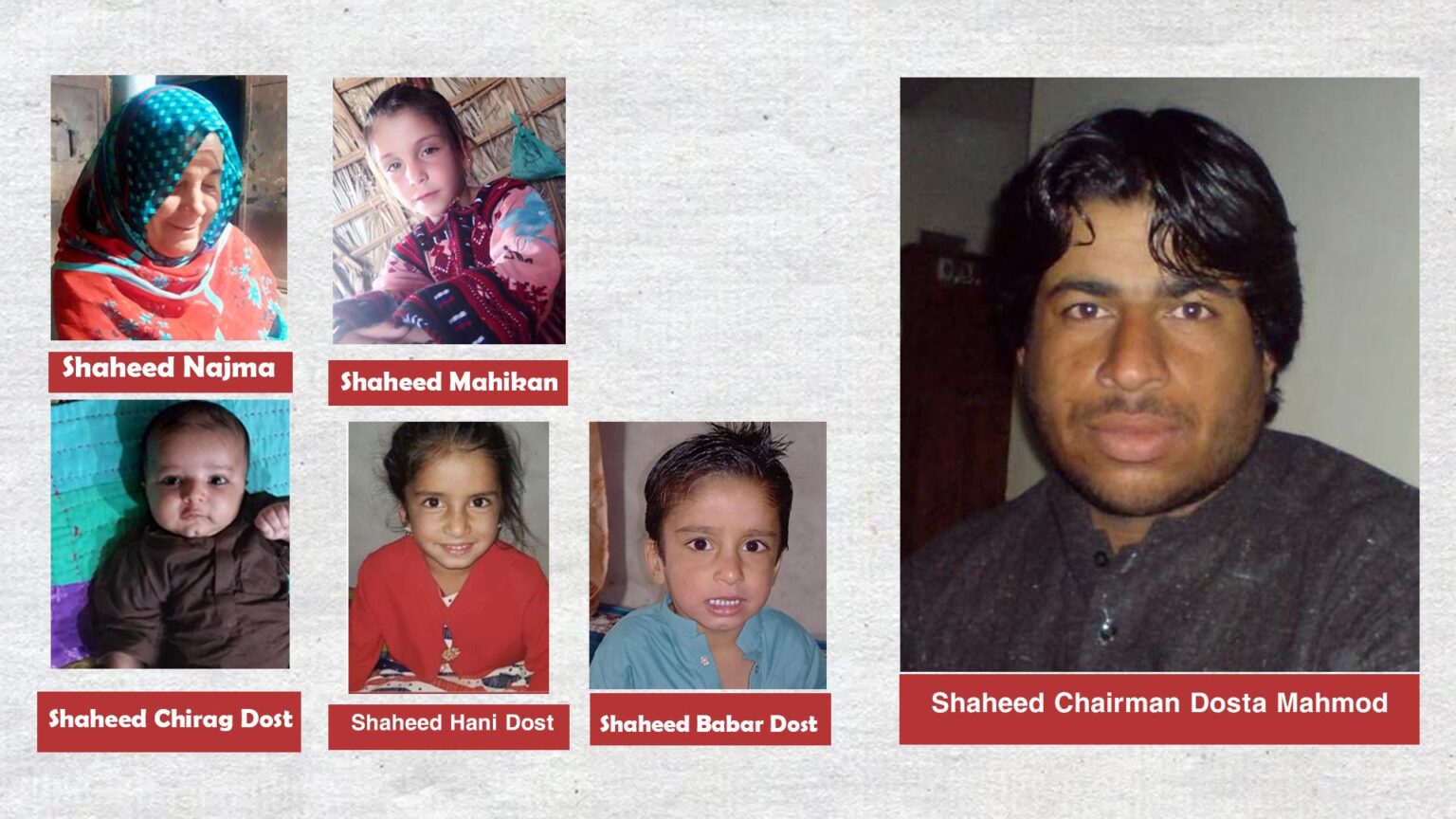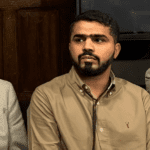The spokesperson for the Baloch National Movement stated that on Thursday, the Pakistani army targeted Baloch refugees with missile attacks in Western Balochistan. Tragically, ten women and children, including Baloch refugees and members of the central council of BNM Dosta Mahmod, lost their lives in this attack. BNM pays tribute to the martyred chairman Dosta and the other victims. Chairman Dosta’s enduring commitment to the movement and his sacrifices for the party will be eternally remembered, ensuring his place in our collective memory.
The BNM spokesperson revealed that Dosta Mahmood, originally from Parom, Panjgur district of eastern Balochistan, relocated due to the relentless military aggressions conducted by the Pakistani army in Parom. Seeking refuge, he and his family moved to the village of Shamsar (Haqabad) in Iran-administered West Balochistan, situated a few kilometers away from Parom, where they lived with close relatives for several years. Tragically, on Thursday, ‘BNM Senior Member Chairman Dosta’ and his entire family fell victim to a deliberate attack by the Pakistani Army.
He highlighted that this incident epitomizes the severe atrocities committed by Pakistan against the Baloch nation. Seven missiles were launched by Pakistan targeting the civilian population, resulting in extensive destruction to various homes. The attack claimed the lives of ten individuals who had sought refuge in western Balochistan to escape the oppression of the Pakistani army, including women and children. Among the martyrs are Dost Mohammad, son of Mahmod (Chairman Dosta), his wife Shazia, and their young children: Babar Dost, Hani Dost, Chirag Dost. Also, among the victims is Najma Baloch from the family of Shaheed Younas Baloch, who migrated from Panjgur, as well as the innocent children Farhad son of Mohammad jan, Mahikan and Mahzeb.
The BNM spokesperson emphasized that the Pakistani authorities and media are erroneously asserting that the Pakistani army targeted the Sarmachars’ hideouts in retaliation for the ‘Iranian attack on Panjgur’ by martyring women and children. However, the spokesperson revealed that video footage and photographic evidence clearly demonstrate that Pakistan, in reality, aimed at the civilian population, leading to the martyrdom of women and children. Chairman Dosta, identified by Pakistan as the primary target of the attack, was an “unarmed political activist” who openly engaged on social media using his real identity. It is noted that had he been a commander of an armed organization, it is unlikely he would have maintained an active presence on social media with his real identity.
He mentioned that this attack marks an unprecedented level of severity, particularly in terms of the tragic loss of women and children. However, even prior to this incident, Baloch refugees have faced lethal threats from Pakistani agencies in neighboring countries such as Afghanistan and Iran, as well as in various other nations globally. The Baloch National Movement has consistently urged the international community to intervene and safeguard the lives of those who migrated from Eastern Balochistan to Western Balochistan, advocating for their recognition as refugees on the international stage.
The spokesperson emphasized that rather than maintaining silence on this attack, Pakistan must be held globally accountable for this terrorist act. There exists undeniable evidence pointing to Pakistan’s deliberate perpetration of these attacks on civilian populations. Innocent individuals with no involvement in armed activities were specifically targeted. This tragic incident resulted in the martyrdom of only women and children, with Pakistan openly admitting responsibility for this massacre.
In conclusion, the spokesperson highlighted that, in addition to numerous party members, ordinary Baloch individuals have sought refuge in various countries, including Iran-controlled Balochistan, Afghanistan, the Gulf, Europe, and the United States, escaping the oppression and brutality imposed by Pakistan. Despite their widespread dispersion, international organizations have regrettably overlooked the recognition of Baloch refugees, failing to include them in priority lists. Consequently, Baloch refugees encounter challenges in registering their refugee status and are denied the rights afforded to refugees at the international level.








